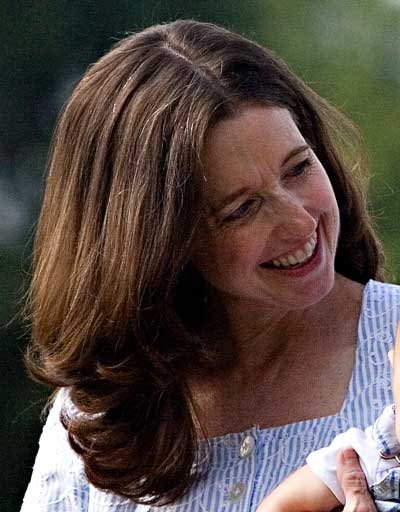I recently finished a very large project, large both in the actual size of the item and the time it took me to complete. I have been working on a 4-foot by 6-foot banner for a group holding a religious retreat weekend and it has taken me about two months to finish. I was given a picture of the design that I was being asked to recreate and had fun putting together lots of brightly colored fabrics. I can’t show you a picture of the completed project just yet – it wouldn’t be fair to post a picture on the internet when no one involved in the weekend has had a chance to see it. But I will show you a little piece of it because I want to explain how I did the stipple stitching on it.

At the center of the design is a large butterfly. After fusing the various pieces in place I thought it needed some stitching to add some detail. Let me tell you right now that I am a lousy machine quilter. I try, I really do. I’ve created dozens of projects with free motion quilting but I am never really happy with my work. I even used to practice by making quilts to donate to charities who gave them to children because I figured the kids didn’t mind if my stitching was not perfect. I love the look of stippling but again, have never mastered it. I certainly wasn’t going to attempt it on a 4x6 piece of heavy, pieced canvas. Instead I used a machine embroidery stipple design (you can find one similar to mine here) and let my embroidery machine do the stippling for me.

I have used this design so many times and on so many different projects. This time I had to apply a little creative thinking since I wanted to embroider a butterfly-shaped area instead of a rectangle. I set up my machine as usual and began by walking through the first several stitches of the design, advancing one stitch at a time to ensure that the stitches fell within the area I wanted to stitch. I started stitching the design and whenever I got to an edge of the design where I wanted the stitches to stop, I stopped the machine and manually advanced the design a few stitches at a time until the needle was once again within the area I wanted to stitch. This sounds time consuming and tedious – I certainly thought it was going to be – but I was surprised at how quickly I was able to complete the task. I had to stitch the design twice, once on the left side of the butterfly and once on the right.
I’m pleased with the way this stitching turned out and am going to store away this idea to use on other projects. I really have found so many uses for this stippling design – it is probably my most-used file. Give it a try.
 Friday, September 24, 2010 at 9:24PM
Friday, September 24, 2010 at 9:24PM 















